As I take a few minutes to reflect on the tools I have been using this year, a few keep coming up as my absolute favorites. Students are asking to see the teacher dashboard, to see their …
Get Started for FREE
Sign up with Facebook Sign up with X
I don't have a Facebook or a X account
 Your new post is loading... Your new post is loading...
 Your new post is loading... Your new post is loading...

Melissa Marshall's curator insight,
November 29, 2013 1:05 AM
Here is a great visual containing some good ideas for lower school classes - along with the websites to check out. If you click on the image and load the webpage, the links become clickable. 
Gemma Schormann's curator insight,
December 2, 2013 10:43 PM
I agree! Math really needs to be taught better!

Zhendan (Max) Wang's curator insight,
April 11, 2013 3:05 PM
That's brilliant. if education could be implanted into games. everybody would be so happy to learn. 
Alexis's curator insight,
October 3, 2013 10:17 AM
This game understands students on a personal level. It adapts to their needs and teaches math at their speed. Its a great teaching tool and targets a "trouble area" for each student so they can work on their own pace. I could definitely see myself using this in the classroom.

Laura Jane's curator insight,
December 16, 2013 2:03 PM
As Ms. Dichter already stated, this article draws an interesting comparison between our belief that math anxiety doesn't start until sixth grade with the overwhelming reality that we're seeing symptoms of anxiety as early as first grade. This SchoolBook article gives an interesting example, a 7-year-old girl named Zoey, who excels in reading, but struggles in math. The pressure that her parents put on her largely contributes to her anxiousness. The article gives a multitude of ideas for how to combat math anxiety, even beginning as young as first grade. Constantly providing reassurance, demonstrating patience, and exhibiting that it's okay to not get something on the first try are all suggestions that I hope to implement in my own classroom.

Quishawna Henderson's curator insight,
January 23, 2013 9:48 PM
I use this often in my math classroom now. The most difficult task is to make sure that students understand the meaning behind it!
Amy Keathley's curator insight,
February 16, 2014 9:41 PM
This is definitely the direction we need to go - many students have such a hard time connect the math they learn in class to the real world and this is a step in the right direction! |

Autism Daily Newscast's curator insight,
September 10, 2014 4:26 AM
Not an app but close enough - love it.
Elizabeth Bowden's curator insight,
September 12, 2014 7:52 PM
In addition to using Lego for maths, I've taken my sons (extensive) Lego collection into History and Society & Culture to have the students (high school) demonstrate their understanding of concepts such as globalisation, communism, nationalism, capitalism. Worked really well and classes sooo happy.
Having been broken up into groups and given a concept each, They created cities or environments demonstrating the concept then talked the rest of the class through. 
Ness Crouch's curator insight,
September 13, 2014 4:06 PM
Fantastic ideas for using lego in mathematics. Simple hands on tasks.
Christine Bushong's curator insight,
November 11, 2013 10:27 AM
Beth Dichter's insight:
This infographic looks at eight instructional practices that will help students meet Common Core standards and provides a look at how to do this in elementary, middle and high school settings. Check it out and see the recommendations for the following areas: * Make sense of problems and persevere in solving them * Reason abstractly and quantitatively * Construct viable arguments and critique the reasoning of others * Model with mathematics * Use appropriate tools strategically * Attend to precision * Look for and make use of structure * Look for and express regularity in repeated reasoning For more detailed information click through to the infographic.

April Ledesma's curator insight,
October 6, 2014 11:18 PM
Educational games are great ways for learners to have technological interaction in the classroom, plus the students love it!
Laurie Smith's curator insight,
May 17, 2013 3:27 PM
Great infographic about Why STEM matters.. Source:edutopia
Rebecca Wilkins's curator insight,
July 31, 2015 10:10 AM
Engineering is the missing piece of STEM. Rarely do you find a focus on STEM that capitalizes on engineering. 
Ellen Dougherty's curator insight,
August 1, 2015 11:42 AM
A great infographic that looks as the value of a STEM education...for more on the value of educating students in science, technology, engineering and math click through to the post. You may also download the infographic as a pdf.

Mr. Jordan DHS math's curator insight,
June 11, 2015 9:31 AM
This is an awesome thought provoking article!
Kaley Hannon's curator insight,
September 16, 2013 2:12 AM
A study done in Germany argues that it's not the children who have the high IQ's that are growing most in their math skills but it is the ones who are most motivated. Through the research conducted they collected evidence that shows that the even though the kids with the higher IQ's started at a higher level when it came to understanding math the children who reported that they were motivated to learn math were the ones who picked up the math skills faster. 
Terri Goldson's curator insight,
February 1, 2014 3:21 PM
Unfortunately the intelligence quotient has always been the standard measure used within education and beyond, that is said to determine our ability to learn. We know through common observation, that premise is not always an indicator of success. Other very important factors play a role in everyone’s ability to navigate through life. Factors such as motivation, determination, perseverance and other intangibles are important influences. Tapping into those essential elements will make learning more meaningful for all learners. Knowledge IS Power!
Chaeyeon Seo's curator insight,
November 9, 2014 10:00 AM
Motivation is important not only in math but in every part of work |





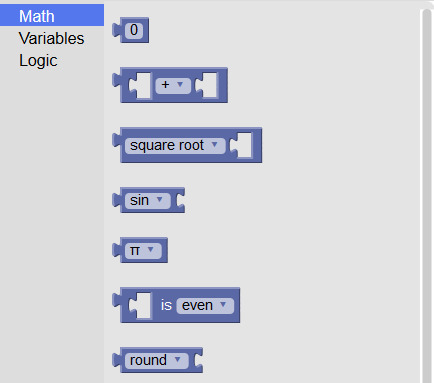




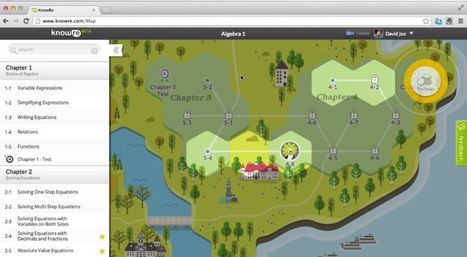


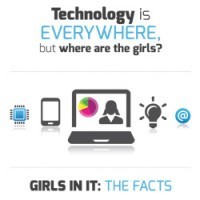
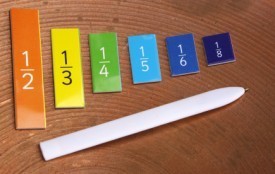
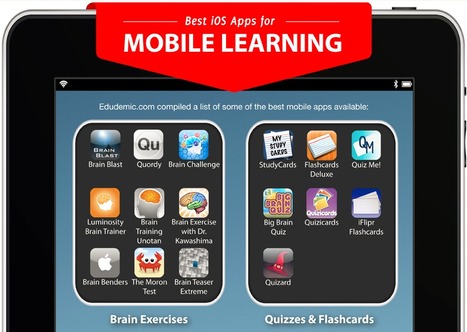


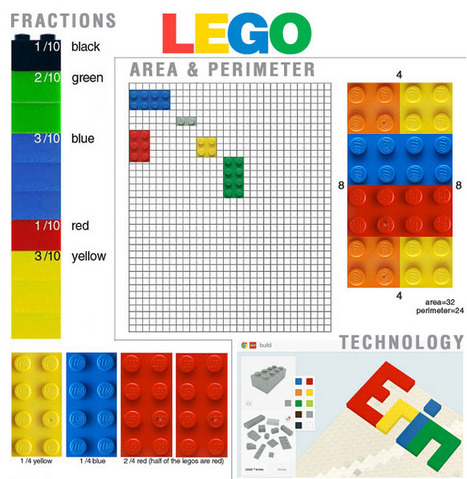

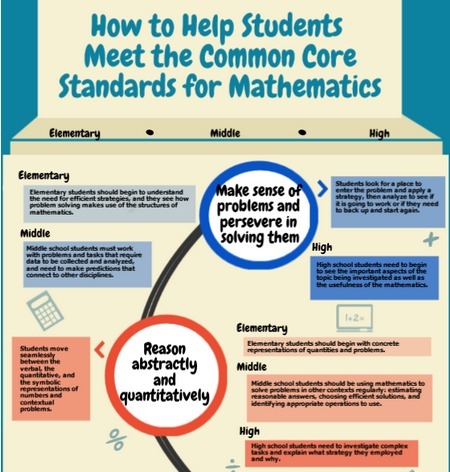
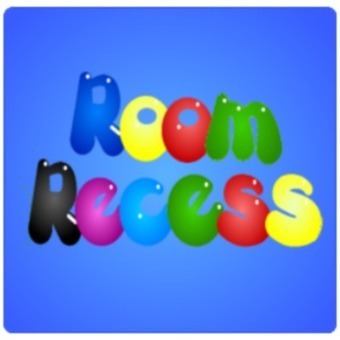


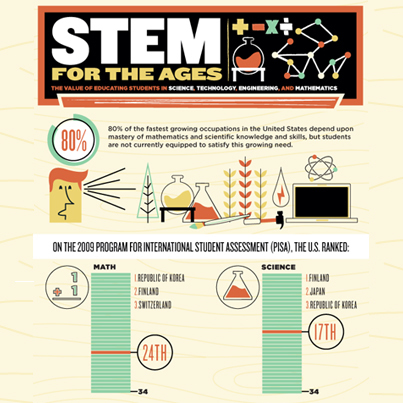
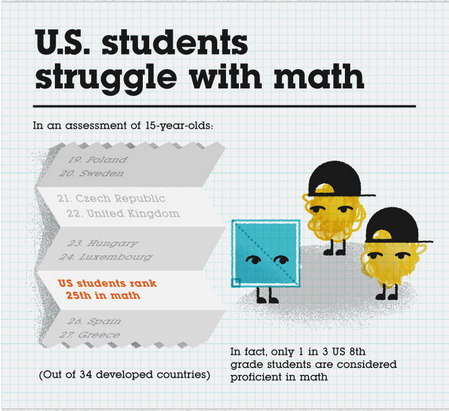


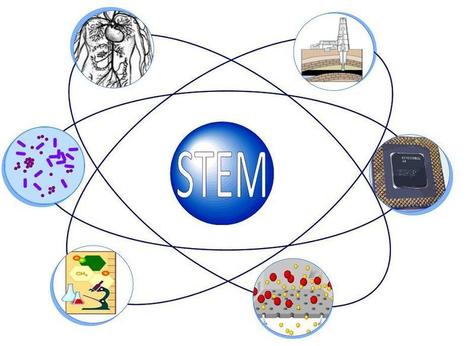
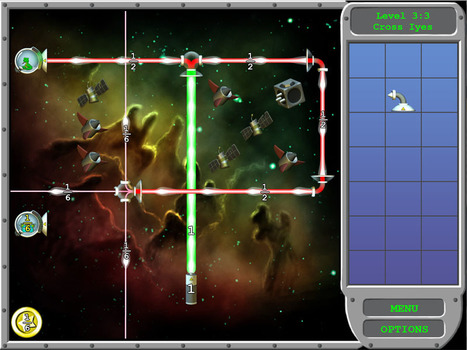

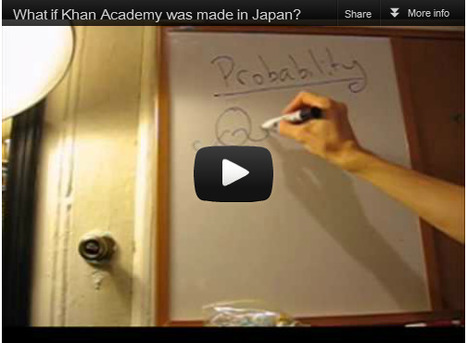





Are you considering using blended learning as a component of your classroom? This post suggests three great tools that may help you move forward on this journey.
* FrontRow provides differentiated math instruction for K- 8. It works across platforms and provides a pre-test (to place students correctly). Tutorials, videos, suggestions of students in their classroom to help are some of the many features provided. There is a free version and schools/districts may also choose to pay for access to more robust reports.
* MobyMax provides access to both ELA and Math for students in Grades K-8. There is a free version as well as a version that costs $99 per classroom (and provides additional tools) as well as a cost for a school. Students earn badges throughout this program. For more information click through to the post.
* Skoolbo also provides ELA and Math resources for students in elementary school. They state “our particular favorites are the ones below 8 years of age..” because they see the most improvement in this age group. Currently Skoolbo is providing free registration to schools in the U.S. who register prior to Dec. 31, 2014.
These are all great tools and you may find one that meets your needs. Each is aligned to the Common Core standards.